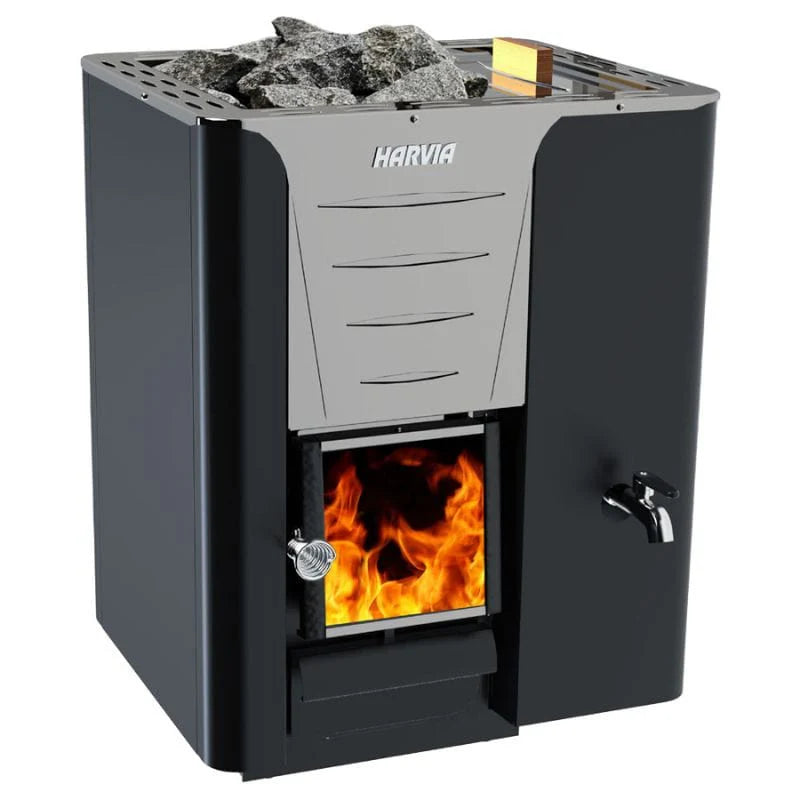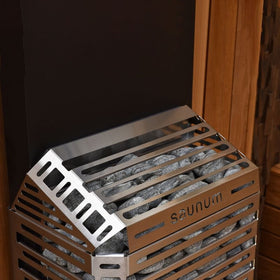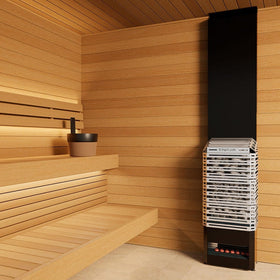
The Ultimate Guide to Choosing the Best Sauna Heater for Your Home
When building or upgrading a home sauna, the sauna heater is the heart of the experience. It controls temperature, efficiency, and the overall atmosphere of your sauna. In this guide, we’ll explore the different types of sauna heaters, how to choose the right size for your sauna, and provide tips for maintaining your heater to ensure it lasts for years.
Types of Sauna Heaters
There are several types of sauna heaters available, each offering unique benefits. Here's a breakdown of the most popular options:
-
Electric Sauna Heaters
- How they work: These are the most common type of heaters in home saunas. Powered by electricity, they heat sauna rocks, which then radiate heat throughout the room.
- Pros: Easy to use with digital controls, consistent heating, quick to warm up.
- Cons: Dependent on electricity, meaning operational costs could increase over time.
- Ideal for: Homeowners looking for a modern, low-maintenance sauna heating solution.
-
Wood-Burning Sauna Heaters
- How they work: These heaters use firewood to heat the sauna rocks, providing a traditional sauna experience. Smoke is channeled through a chimney to keep the air clean.
- Pros: Authentic feel, ideal for off-grid or rural locations, no need for electricity.
- Cons: Requires more maintenance (cleaning out ashes), takes longer to heat up, need for proper ventilation.
- Ideal for: Traditionalists or those in remote areas where electricity is limited.
-
Infrared Sauna Heaters
- How they work: Instead of heating the air, infrared heaters emit infrared light, which directly warms the body.
- Pros: Lower operating temperature (making it more comfortable for some), energy-efficient, quick warm-up times.
- Cons: Doesn’t offer the traditional sauna experience, no heat from sauna rocks, limited to infrared saunas.
- Ideal for: Health-focused users who prioritize the benefits of infrared therapy.
-
Gas Sauna Heaters
- How they work: These heaters use natural gas or propane to heat the sauna. They're less common in home installations but are efficient for larger or commercial saunas.
- Pros: Efficient and cost-effective for large spaces, fast heating.
- Cons: Higher installation costs, requires a gas line, less commonly available in residential settings.
- Ideal for: Large home saunas or commercial facilities.
Choosing the Right Size Sauna Heater
Selecting the correct heater size is crucial for efficiency and effectiveness. A heater that's too small will struggle to heat the room, while an oversized heater may make the sauna uncomfortably hot.
Here’s a general guide to help you:
-
Sauna Size (Cubic Feet): Measure the dimensions of your sauna to calculate the cubic feet (length x width x height). For every 50 cubic feet, you’ll need about 1 kW of power from the heater.
- Example: For a sauna that’s 6 ft x 6 ft x 7 ft (252 cubic feet), you would need a heater with at least 5 kW.
- Adjust for Materials: If your sauna has glass doors or concrete walls, you’ll need additional power to compensate for heat loss. Add 1.5 kW for every square meter of non-wood surface.
Energy Efficiency and Running Costs
Choosing an energy-efficient sauna heater can significantly reduce your running costs. Here are a few factors to consider:
- Electric Heaters: Modern electric heaters come with energy-saving modes and programmable timers, which allow you to pre-set heating times, saving both energy and money.
- Infrared Heaters: Known for their energy efficiency, infrared heaters run at lower temperatures and consume less power than traditional electric heaters.
- Wood-Burning Heaters: These don’t rely on electricity, but the cost and availability of wood can be a factor, especially if you use your sauna frequently.
Sauna Heater Installation
Proper installation of your sauna heater is essential for performance and safety. Here are a few tips:
- Follow Manufacturer’s Guidelines: Ensure that the heater is installed according to the manufacturer’s specifications regarding clearances, electrical connections (for electric heaters), and ventilation (for wood-burning heaters).
- Hire a Professional: It’s highly recommended to hire a certified electrician for electric heater installations or a skilled technician for gas installations. Improper installations can result in inefficiency and safety hazards.
- Sauna Ventilation: Regardless of the type of heater, proper ventilation in your sauna is important. For wood-burning heaters, you’ll also need a chimney or flue for smoke.
Sauna Heater Maintenance Tips
To keep your sauna heater running efficiently, regular maintenance is key. Here’s how to care for your heater:
-
Electric Sauna Heaters:
- Clean sauna rocks periodically to remove debris and dust. Replace broken rocks as they can block airflow and cause the heater to overheat.
- Inspect the heater elements annually to ensure they're not damaged.
-
Wood-Burning Sauna Heaters:
- Clean the ashtray and chimney regularly to prevent blockage.
- Ensure the chimney is free of creosote buildup, which could cause a fire hazard.
-
Infrared Sauna Heaters:
- Dust the infrared panels occasionally, but they typically require minimal maintenance.
-
Gas Sauna Heaters:
- Check the burner and gas lines periodically for leaks or blockages.
- Clean and service the heater annually to ensure it’s running efficiently.
Conclusion
Choosing the right sauna heater depends on your preferences, sauna size, and energy needs. Whether you’re drawn to the authentic experience of a wood-burning sauna heater, the convenience of electric heaters, or the health benefits of infrared technology, understanding your options will help you make the best decision for your sauna setup.
By following proper installation and maintenance practices, your sauna heater will provide years of relaxation and wellness. For expert advice or to explore our range of sauna heaters, visit My Sauna Plus.








Leave a comment